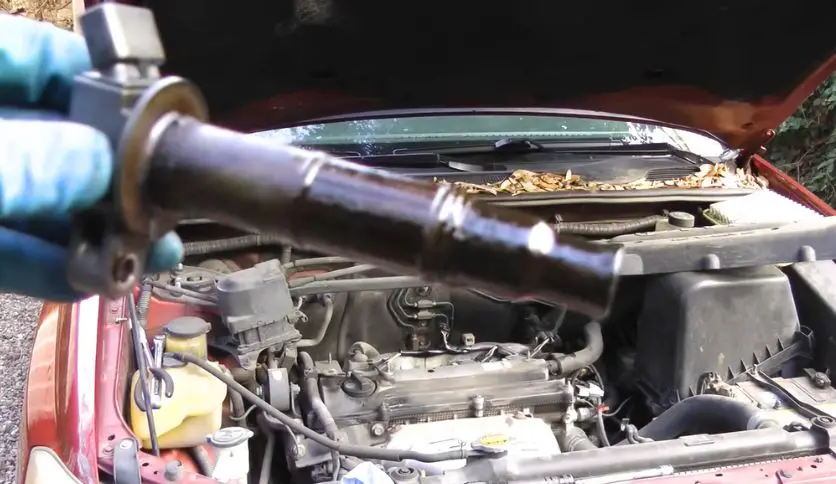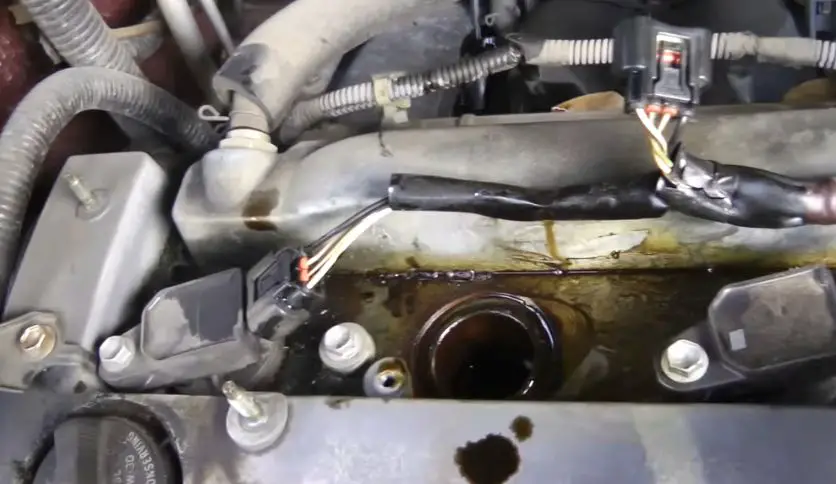Oil leaking from the exhaust manifold typically indicates a gasket failure or a crack in the manifold itself. It often requires immediate mechanical attention to prevent further engine damage.
Experiencing oil leaking from your exhaust manifold can be troubling, suggesting a significant issue with your vehicle’s engine health. This can lead to decreased performance, potential fire hazards, and environmental pollution. The exhaust manifold collects exhaust gases from the engine’s cylinders, and any oil leak in this area can degrade the manifold’s functionality.
Swift diagnosis and repair are crucial to ensure your engine operates efficiently and to mitigate the risk of costly damages. A qualified mechanic can identify the source of the leak, be it a worn-out gasket, a cracked manifold, or another related problem, and then provide an appropriate solution. Regular vehicle maintenance is essential to catch such issues early on, ensuring a longer lifespan for your car and uninterrupted journeys on the road.
Contents
Common Causes Of Oil Leaks From Exhaust Manifold

Oil leaks in exhaust manifolds are often attributed to a damaged gasket. The gasket seals the manifold and the engine, preventing oil and gases from escaping. Over time, exposure to intense heat and pressure can cause the gasket to deteriorate, leading to oil seepage. It is essential to replace a faulty gasket promptly to avoid further engine damage.
A cracked exhaust manifold is another significant cause of oil leaks. The manifold can develop cracks due to thermal stress from the fluctuating temperatures within the engine compartment. These cracks can become passages for oil to leak through. Regular inspections can help detect such issues early on, ensuring timely repairs.
Lastly, an overfilled crankcase can force oil into the exhaust system. The excessive oil level might result from incorrect readings on the dipstick or overzealous oil changes. Maintaining the proper oil level in the engine is crucial, as overfilling can lead to increased pressure, contributing to leaks and potential damage to the exhaust manifold and other engine components.
Inspecting And Diagnosing The Oil Leak
Inspecting and diagnosing an oil leak from an exhaust manifold requires a thorough examination to pinpoint the exact origin. A visual inspection is often the first step, which is traceable along the exhaust system. Any presence of oil on the manifold itself or its surrounding components could lead to the source of the leak.
The severity of the leak can range from minor to major, and it is crucial to evaluate the extent of the issue. This can be done by checking the oil level and observing the rate at which it depletes. Signs of excess oil pooling or dripping indicate a significant concern that needs immediate attention.
Understanding the impact on engine performance is vital. A leak might cause a burnt oil smell and potential fire hazards. Prolonged leaking can lead to a decrease in engine efficiency and an increase in fuel consumption. It is imperative to address such leaks promptly to prevent further damage to the engine.
Quick Fixes For Oil Leaks From Exhaust Manifold
Oil leaks from an exhaust manifold are often due to worn or damaged gaskets. A practical solution involves replacing gaskets that seal between the manifold and the engine block. Over time, these can deteriorate and require a straightforward replacement for a secure fit that prevents oil from seeping out.
Repairing cracks in the exhaust manifold is also essential; these can cause oil to escape and burn off during engine operation. For small cracks, high-temperature epoxy specifically designed for metal can be used. For larger fractures, professional welding may be necessary to seal the leaks and restore the integrity of the manifold.
Addressing an overfilled crankcase is crucial as it can prompt oil leaks from several engine components, including the exhaust manifold. Properly measuring and maintaining oil levels are preventative measures to ensure that excessive pressure doesn’t force oil past seals or gaskets.
Frequently Asked Questions Of Oil Leaking From Exhaust Manifold
Why Would Oil Come Out Of Exhaust Manifold?
Oil from the exhaust manifold typically indicates engine issues like worn piston rings, valve seals, or a compromised head gasket, allowing oil to leak into the combustion chamber and out the exhaust.
What Happens If Exhaust Manifold Is Leaking?
A leaking exhaust manifold can lead to reduced engine performance, increased noise, and potentially harmful exhaust fumes entering the vehicle. It may also cause damage to surrounding components due to excessive heat.
Can I drive with a leaky exhaust manifold gasket?
Driving with a leaking exhaust manifold gasket is not recommended. It can lead to harmful fumes entering the vehicle and cause further engine damage. It’s best to fix it promptly.
Why Is Oil Burning In My Exhaust Manifold?
Oil burning in an exhaust manifold often results from worn engine components, such as valve seals or piston rings, causing oil to leak and combust.
Conclusion
Oil leaks from an exhaust manifold can be a serious concern, necessitating timely action. Regular inspection and prompt repair preserve engine health and performance. It’s crucial to consult a mechanic for a durable solution. Remember, a well-maintained vehicle ensures safety and efficiency on the road.
Act swiftly to address exhaust manifold leaks for a smoother ride.

Hello, this is Wesley Shelton, currently working in a car restoration company for over 5 years. Before that, I was a worker at a small car repair shop. As I was a car freak from a young age and worked as a professional for over half a decade, I think I now know pretty much everything about every car and its parts. To establish my name as a professional and help others by sharing my knowledge, I’ve created this website, which I work on whenever I get free time. I hope you’ve enjoyed my informative blog!


